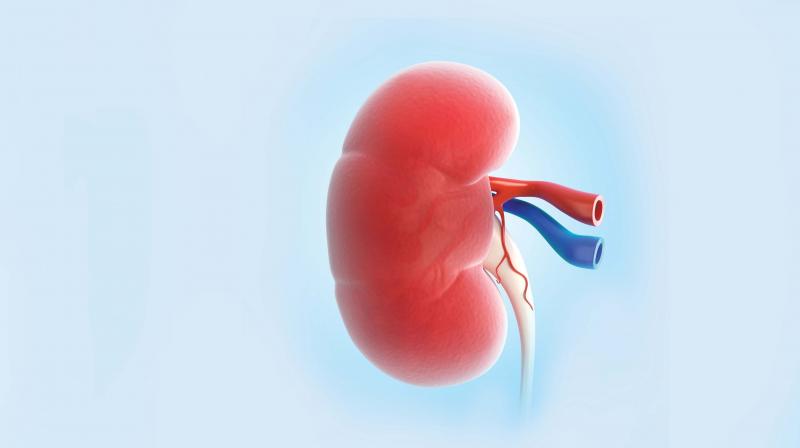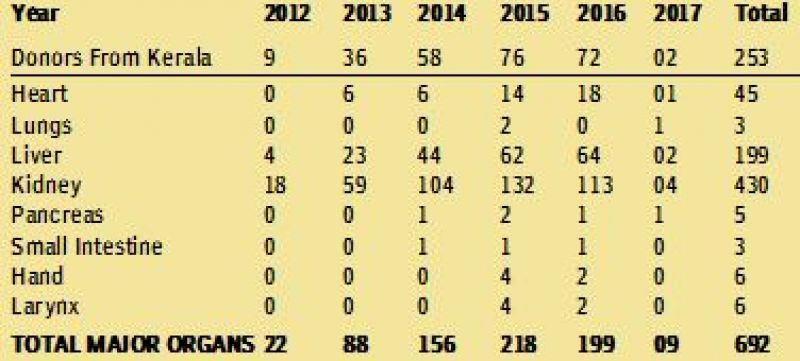Terminal patience: Many chronic kidney patients face a bleak future
Many chronic kidney patients face a bleak future owing to the cumbersome process and long waitlist.

Thiruvananthapuram: Depressing statistics brings forth the trauma of terminal patients awaiting kidney transplant in the State. Only four kidney transplants have taken place since January as against an average 9.5 last year.
1,500 patients are in the queue, awaiting their turn to get kidney transplantation under Mrithasanjeevani project of State Government’s Kerala Network for Organ Sharing.
Many patients, especially those who do not have the means, face a very bleak future, owing to the cumbersome process involved in identifying a donor and costs involved if the transplant is to be done in a private hospital, estimated at roughly Rs 25 lakh.
Experts say the recent decline in the number of transplants owes to a newfound fear among doctors and authorities in private hospitals about reprisals if brain-stem deaths are reported. Under-reporting of brain-stem deaths is affecting cadaver organ transplantation.
Two ways are open for organ transplant: from live donors and from cadavers of the brain-dead.
In the first case, donors have to be a first degree relative (wife/husband, parent, sibling or cousin) or unrelated, altruistic donors. In the second case, the patient will have to await the turn as per seniority on the online registry under KNOS cadaver transplantation. Under Mrithasanjeevani, kidney transplantation costs only Rs 5 lakh.
As on March 8, 1,134 males and 366 females have registered with the Government for transplant.
The concern raised by a doctor in Kollam, S. Ganapathy, before the High Court on hidden dangers in brain death certification have contributed to panic among hospital authorities and patients alike.
If the Government tried to bring better accountability and transparency to the process of organ donation, it has not gone down well with the majority of the kidney patients, awaiting suitable donors. Ever since KNOS started in August 2012, there have been 600 deaths of patients on the register. The KNOS nodal officer, Dr. Noble Gracious, however preferred to discount reports of panic.
“There has been no stalemate on kidney transplantation. Last year during the same period (Jan – Feb), four brain deaths had occurred and there have been a total 11 transplants of different organs. We have been collecting all data on brain deaths and different organ transplantations happening from all transplant centres. We can’t ask them why there has been no brain deaths when they have failed to report it”, said Dr Gracious.
He says the biggest challenge KNOS faces is underreporting by various hospitals and lack of proper communication between docs treating kidney patients and relatives of brain dead patients.
The Human Organ Transplantation Act was passed in 1994 to streamline organ donation and transplantation activities. Broadly, the act reckons brain death as irreversible but makes the sale of organs a punishable offence. Crimes have been reported from Tamil Nadu, Maharashtra and Punjab. Doctors and hospital authorities involved in the illegal practices have been put behind bars.
Doctor waits in the wings
Plastic surgeon K. S. Sunoj, 45, based in Thiruvananthapuram, is among patients awaiting renal transplant and been prolonging his life through dialysis on alternate days for five months.
“I am a single child. My mother is old and can’t donate her kidneys. Most of my cousins live abroad, who can’t afford to take time off to undergo the procedure and put up with the post-operation phase. That leaves me with the sole option to await an altruist donor. But with more than a dozen formalities to comply for both the recipient and the donor, transplantation is long way off”, said Dr. Sunoj.
He needs Rs 45, 000 a month for dialysis, insulin and cardiac treatment.
He used to lead a hectic and rewarding life, shuttling between major centres in cities but now is confined to his home. He shudders at every post-dialysis phase as it kills his nerves. Fatigue, vomiting, constipation, cramps and sleeplessness add to a creeping sense of despondency.
The long wait for transplant and official indifference has left a bad taste in his mouth. He wonders why all patients needing kidney plants do not get it with the speed with which External Affairs Minister Sushma Swaraj was given one, courtesy an altruist donor.
Dr Sunoj thought of going to a neighbouring State for the transplant. But even that option is tough. “It is after the transplant that the patient needs more care. Being away from home and dear ones will add to the emotional burden. So this is equally traumatic”, said Dr. Sunoj.


